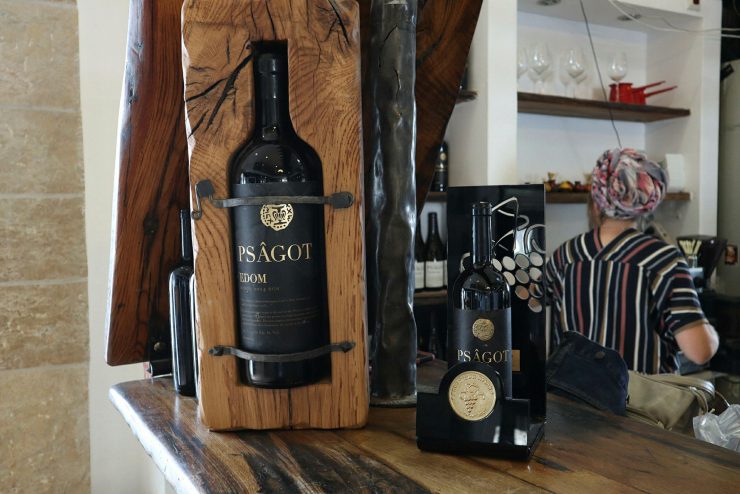The European Court of Justice (ECJ) on Tuesday ruled that Israeli products produced in Judea and Samaria, eastern Jerusalem and the Golan Heights will be required to be labeled as stemming from “Israeli settlements,” eliciting angry responses by Israeli leaders.
In a statement, the ECJ declared “foodstuffs originating in the territories occupied by the State of Israel must bear the indication of their territory of origin” adding that so-called “settlements” “give concrete expression to a policy of population transfer conducted by that State outside its territory, in violation of the rules of general international humanitarian law”.
‘);
_avp.push({ tagid: article_top_ad_tagid, alias: ‘/’, type: ‘banner’, zid: ThisAdID, pid: 16, onscroll: 0 });
Following the ECJ’s decision, these Israeli products sold in the European Union will no longer be able to carry the “Made in Israel” or “Product of Israel” labels. Additionally a classification of stemming from “Samaria” or the “Judean Hills” will no longer suffice.
The ruling makes it mandatory for European Union states to label Israeli products from Judea and Samaria, eastern Jerusalem and the Golan Heights as products of “Israeli settlement.”
The ECJ ruling followed an official complaint by the Psagot winery, located in Samaria, launched against the French government. France in 2016 ruled that – in accordance with a 2011 European Union regulation prohibiting customers from being “misled” in regards to the origin of products – products from Judea and Samaria should be labeled as stemming from “settlements.” The winery took the French government to court, citing “discrimination against Israel and the Jewish people.”
Ruling against the Psagot winery, the ECJ said that “consumers have no way of knowing, in the absence of any information capable of enlightening them in that respect, that a foodstuff comes from a locality or a set of localities constituting a settlement established in one of those territories in breach of the rules of international humanitarian law”.
Speaking out against the ruling, the Yesha Council, the organization representing Israeli communities in Judea and Samaria, claimed the ECJ’s decision was “not worth the paper on which it is written,” and calling it “a hypocritical decision stemming from the most inferior kind of anti-Semitism.”
International law expert Eugene Kontorovich added the ECJ’s ruling “is putting a new ‘Yellow Star’ on Jewish-made products,” calling the decision “inconsistent” with the treatment of other disputed areas. Kontorovich pointed out that the ruling set a precedent in product labeling addressing “who” it was produced by, rather than the standard practice of labeling products according to geographic standards.
The Council declared the decision detrimental to the region’s Arabs and all Israelis. The labeling would “also boycott the Arab workers who earn their living from agriculture and industry in the region”. It called upon the Prime Minister’s Office, the Foreign Ministry and the Ministry of Strategic Affairs to “act strongly” to overturn the decision.
A representative of several kibbutzim called for preparations to be made “to save agriculture in Israel and to act in ensuring immediate economic assistance to every farmer whose livelihood will be affected.”
International law expert Professor Eugene Kontorovich added the ECJ’s ruling “is putting a new ‘Yellow Star’ on Jewish-made products,” calling the decision “inconsistent” with the treatment of other disputed areas. Kontorovich pointed out that the ruling set a precedent in product labeling addressing “who” it was produced by, rather than the standard practice of labeling products according to geographic standards.
Yisrael Medad has pointed out that the EU Commission’s judgment is not a legal juridicial decision, but a political interpretive view which is invidious.
The highlighted section from the@EU_Commission judgment is not a legal juridicial decision but a political interpretive view which is invidious.@elderofziyon @haivri @RationalSettler @GOPIsrael @EVKontorovich @no2bds pic.twitter.com/5KvuHr8zpj
— ymedad (@ymedad) November 12, 2019
In response to the European Court of Justice decision to label goods produced in Judea and Samaria as “settler products” and not “products of Israel,” or even “Products of Judea,” Gush Etzion Regional Council head Shlomo Ne’eman responded saying:
“I don’t know what the EU is anymore. Are they detached from reality or trying to produce a reality in which Jews are again marked with yellow stars as they were in Europe 70 years ago?”
Ne’eman added, “Today the residents of Judea and Samaria together with the entire State of Israel are up against the forces of evil, and the European establishment on the other hand chooses to make a despicable decision akin to a boycott. It is sad that those who boycott us do not realize that they will eventually absorb the blows of radical Islam to which they are currently surrendering. And we say with a clear voice: ‘Judea and Samaria are part of the State of Israel’ and we call on our government to declare this loud and clear by applying Israeli sovereignty over our regions.”
‘);
_avp.push({ tagid: article_top_ad_tagid, alias: ‘/’, type: ‘banner’, zid: ThisAdID, pid: 16, onscroll: 25 });




